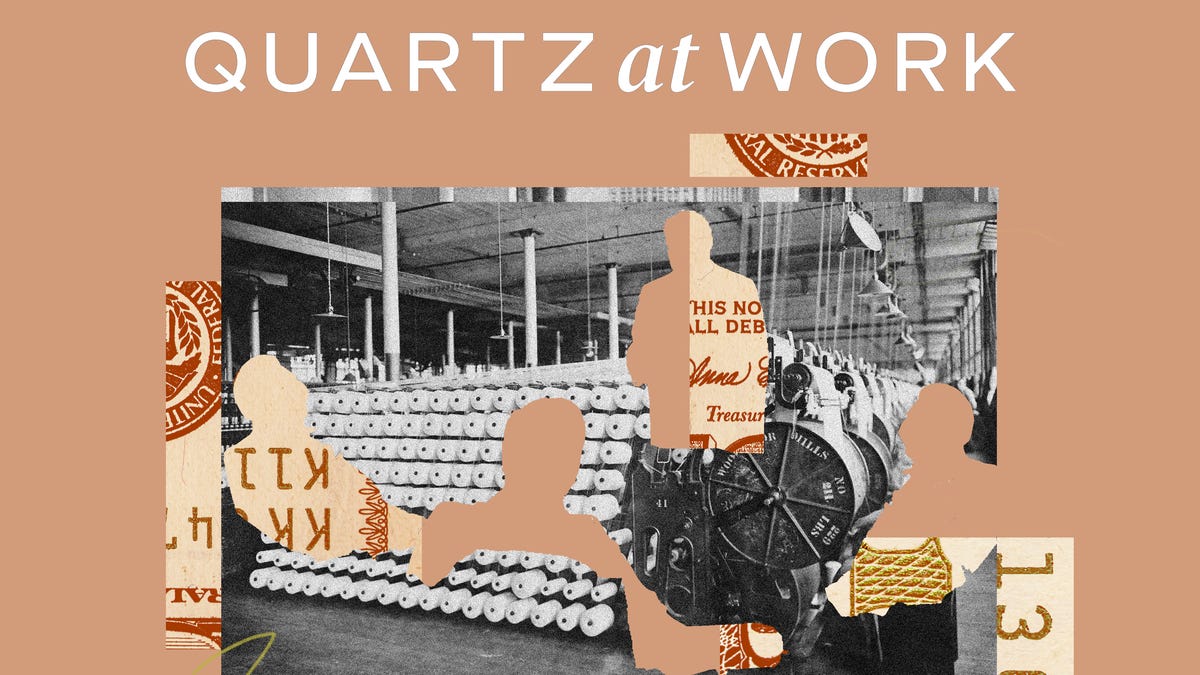Hello, Quartz at Work readers!
The victory of Hollywood’s striking screenwriters—who walked off entertainment lots, waged a five-month-long labor stoppage, and this week announced a tentative agreement with studio bosses—will be felt across industries. And with details of the deal released yesterday evening, Writers Guild of America workers confirmed that they secured an agenda-setting concession: firm restrictions on the use of AI, including a guarantee that artificial intelligence won’t be used to write scripts or create source material.
The writers’ wins have inspired comparisons to other worker movements as AI casts shadows over their livelihoods. There are the picketing auto workers who ask for better pay as robot arms hang over the factory floor. There are the organizing warehouse workers who protest algorithms that dictate their delivery speed. And of course, there are the still-striking actors who fight AI reproducing their likenesses and their labor.
But the WGA’s fight, and especially its pushback against AI, also has striking parallels to a lesser-mentioned labor movement: the Luddites.
Today, to cast someone as a Luddite is to suggest they’re small-minded about technology, or resistant to the futuristic progress that it can bring about. But a new book suggests we misunderstand the story of the Luddites—and that in the age of generative AI and algorithms, we’d be wise to revisit their history. Brian Merchant’s Blood in the Machine, released this week, makes the case that 19th-century clothworkers were the first to see machines come for their jobs, along with the first to recognize why automation is a labor issue. Rather than accept the rise of the robots, they fought back.
More than 200 years later, many workers are doing the same as the Luddites. By winning their bid to restrict AI in their field, Hollywood writers will have also secured a victory in ensuring their work isn’t replaced or devalued by machines.
In an essay on the book, Quartz’s Gabriela Riccardi profiles the centuries-old parallels—and explains how the Luddites really started it all.
WRITERS STRIKE THE RECORD
148: Days that Writers Guild of America workers spent on the picket line before the deal approval was announced yesterday. By that math, the writers’ strike has lasted 21 working weeks (and more than 3,500 hours).
That stretch nearly unseated the record for the longest strike in the industry’s history—153 days, reached by the 1960 writers’ strike. While this year’s deal still needs to be officially ratified by the WGA West’s 11,500 odd members, both of the union’s boards and council have already voted to approve the deal and lift writers’ working restrictions. The WGA has declared it official: as of 12:01 am PT today, the strike is over.
AI ASSISTANTS HAVE ENTERED THE CHAT
Whether Luddites like it or not, office tech is getting more algorithmic. In the past week, both Google and Microsoft have announced new AI integrations in their apps.
At Google, Bard can now be used right inside products like Gmail and Drive. And at Microsoft, workplace products like Word, PowerPoint, and Excel now offer newly expanded tools with its AI assistant, Copilot. More than 600 companies have already beta-tested the tools.
“It’s really early days,” Colette Stallbaumer, general manager of the future of work at Microsoft, tells Quartz. But if CEO Satya Nadella’s vision comes to pass, you can expect an AI companion to follow you across your Microsoft apps and operating devices.
AND LLMS ARE HUNGRY FOR WORDS
“Are you interested in helping to train AI models to become better writers?” the job posting reads. PhD degree preferred. Hindi, Japanese, and English speakers welcomed. US rates start at $25/hour.
Novelists, poets, and literati of all stripes, inquire within: Tech orgs want to feed your skills to the machines. Firms that create training data for AI models are now seeking to hire creative writers—never mind that all that data could one day spell the end of those writers’ marketable skills.
🤖📝 But that’s not the only route generative AI companies are trying to get their LLMs to write like Austen or Hemingway, Quartz’s Julia Malleck reports. And some are more legally dubious than hiring real people.
YOUR WEEKLY WORK HACK
Setting “tiny contracts” can help you reconnect with your job. When he was second-guessing his career choices, Quartz contributor Suneel Gupta writes, he realized he gave a lot of energy over to self-doubt.
“My emotional bandwidth was constantly split between a decision I had made and questioning whether it was the right one in the first place,” he writes. So he struck a deal: he’d look at his job as a “tiny contract”—or a short period of all commitment, no ambivalence.
If you’re feeling similarly stuck in your work, try making a small-scale contract of your own. Pick a timeframe to recommit, whether that’s a few months or a few years. When that contract ends, check in with how you feel—and decide whether to renew it.
QUARTZ AT WORK’S TOP STORIES
🧘♀️ Why rest may not be the best solution when you’re feeling burned out
Denial of responsibility! Vigour Times is an automatic aggregator of Global media. In each content, the hyperlink to the primary source is specified. All trademarks belong to their rightful owners, and all materials to their authors. For any complaint, please reach us at – [email protected]. We will take necessary action within 24 hours.


